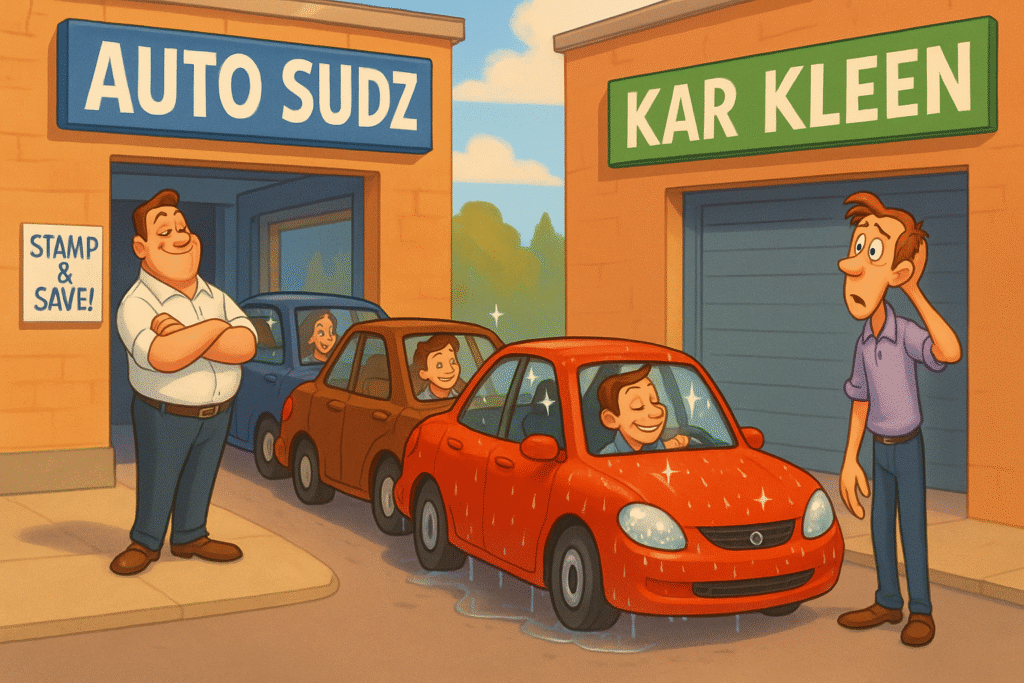
A car wash in 2006 unknowingly revealed one of the most powerful psychological principles in customer retention.
Researchers tested two loyalty punch card offers that were mathematically identical but psychologically worlds apart.
Card A: “Buy 10, get 1 FREE” (starting from zero)
Card B: “Buy 12, get 1 FREE” with the first two punches already stamped
Both cards required 10 purchases to earn the reward.
Yet customers with the pre-stamped cards were nearly twice as likely to complete their loyalty program — and finished significantly faster.
This phenomenon, known as the Endowed Progress Effect, reveals a fundamental quirk in human motivation:
We’re more driven by the progress we’ve ALREADY made than by the progress we still need to make.
The two pre-filled stamps created an illusion of momentum that transformed customer behavior.
Instead of facing a blank card requiring 10 purchases, customers saw themselves as already 17% of the way toward their goal, needing only 8 more visits to complete their journey.
The psychological shift is HUGE.
“I need to start working toward a reward” becomes “I’m already making progress toward a reward I’m close to earning.”
This isn’t just about punch cards. The Endowed Progress Effect explains why software onboarding flows show completion percentages, why fitness apps celebrate your first workout, and why subscription services offer immediate benefits rather than making customers wait to see value.
In I Need That, I crack open how successful products create early momentum that carries customers through the entire experience. The companies that master customer retention make customers feel like they’re already succeeding from the very first interaction.
Product Payoff: I love how LinkedIn applies this principle throughout the platform, starting with profile completion progress bars that show users as already having made progress (basic info counts as 25% complete).
New users see themselves as partially successful rather than starting from zero, dramatically increasing the likelihood they’ll complete their profiles.
This artificial advancement has contributed to LinkedIn’s 90%+ user retention rate and over 1 billion members, as users feel invested in progress they’ve “already made” rather than daunted by starting fresh.
Action for today: Examine your customer onboarding experience for opportunities to create artificial advancement. Can you acknowledge actions customers have already taken (signing up, providing information, making their first purchase) as meaningful progress toward larger goals?
Even small recognitions of early steps can transform customer psychology from “I need to start” to “I’m already on my way.”
Has the Endowed Progress Effect influencing YOUR behavior with loyalty programs or product experiences?
Tap that reply arrow and share how artificial advancement has motivated you to complete something you might otherwise have abandoned.
Or reach out to my team of customer psychology specialists at Graphos Product.
